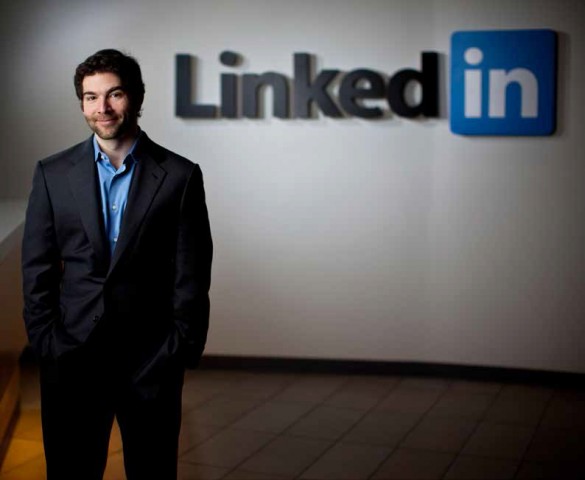LinkedIn CEO Jeff Weiner believes the company’s culture and values are one of its most important competitive advantages, however moving into China has tested those strengths he told a conference in Sydney two weeks ago.
During the fireside chat Weiner went over the company’s development, the challenges he faced taking over from LinkedIn founder Reid Hoffman as CEO and the importance of the company’s ethical base.
“It’s important for companies to define what culture and values mean to them before they get to what the specific values and culture are,” Weiner said in an answer to an audience question.
Defining values and culture
“At LinkedIn we think culture is the collective personality of our organisation and it’s not only who we are but who we aspire to be and that aspirational component is really important,” Weiner continued.
“Oftentimes you’ll see company executives get onstage to introduce culture and values or talk about changing culture and values and it’s not necessarily something the company already does and it loses the trust of the employees and the audience when that material being presented because people know is not necessarily true.
“If you allow yourself to include this aspirational dimension when defining the culture it gives everyone an opportunity to play up to where your setting that bar and I think that’s important,” stated Weiner.
“Values are the first principles upon which we make day to day operating decisions, that’s how we make the distinction.”
Culture as a competitive advantage
“I think once an organisation has defined for itself what it means by culture and values it’s then obviously important to codify its culture and the pillars of the culture and the specific values that it operates with.
“Its not enough to codify it, we went to the trouble of defining it and then putting it in our public registration when we filed to go public and that’s a good start but all too often we see people talking the talk with regard to culture and values and not walking the walk.”
For Weiner, that commitment to the company’s culture is the company’s strength in the marketplace: “Today, I’ll tell you it’s our most important competitive advantage.”
The China Problem
LinkedIn’s culture though has been tested by its entry into the Chinese market where its aspirations of being a content publisher met the limitations of the country’s censors.
When asked by this writer about the quandary LinkedIn finds itself in the PRC, Weiner reconciled this with the company’s mission to connect the world’s professionals.
“China’s one of our largest opportunities in terms of the value we can create for members in China and for companies in China.”
“One in five knowledge workers and students reside in China so it’s a huge part of connecting the world’s professionals and to achieve that kind of scale so we can create value for people who are living in China it’s important that we’re able to do business there.”
“At times means complying with law that forces us to do things that are very challenging and difficult and we always knew the importance of operating in China and for us we wanted to be extremely thoughtful in terms of how we did that.”
Favoring freedom of expression
“Obviously we are very much against the idea of censorship and very much in favor of freedom of expression but in terms of operating there and creating economic opportunities for what could be potentially a 144 million people from time to time we may have to make some very difficult decisions. That’s the reality of doing business there.”
In being asked if this creates a struggle with the company’s culture, Weiner answered “that was one of the things we took so much time on.”
“From the time we decided we needed to be in China and how important it would be in creating the global platform and adding value for members and the time we entered into China with the local language version of the site it was of the order of 18 to 24 months.”
“Discussions took place among our executives asking some very difficult questions in terms of our culture, our values and where we would be willing to compromise and where we would draw hard and fast lines and that will continue to be an ongoing process.”
For LinkedIn and Jeff Weiner the challenge of being a trusted global publishing platform and a leader in the Chinese market raises some serious ethical questions; it’s a challenge that is going to test the company more in coming years.




